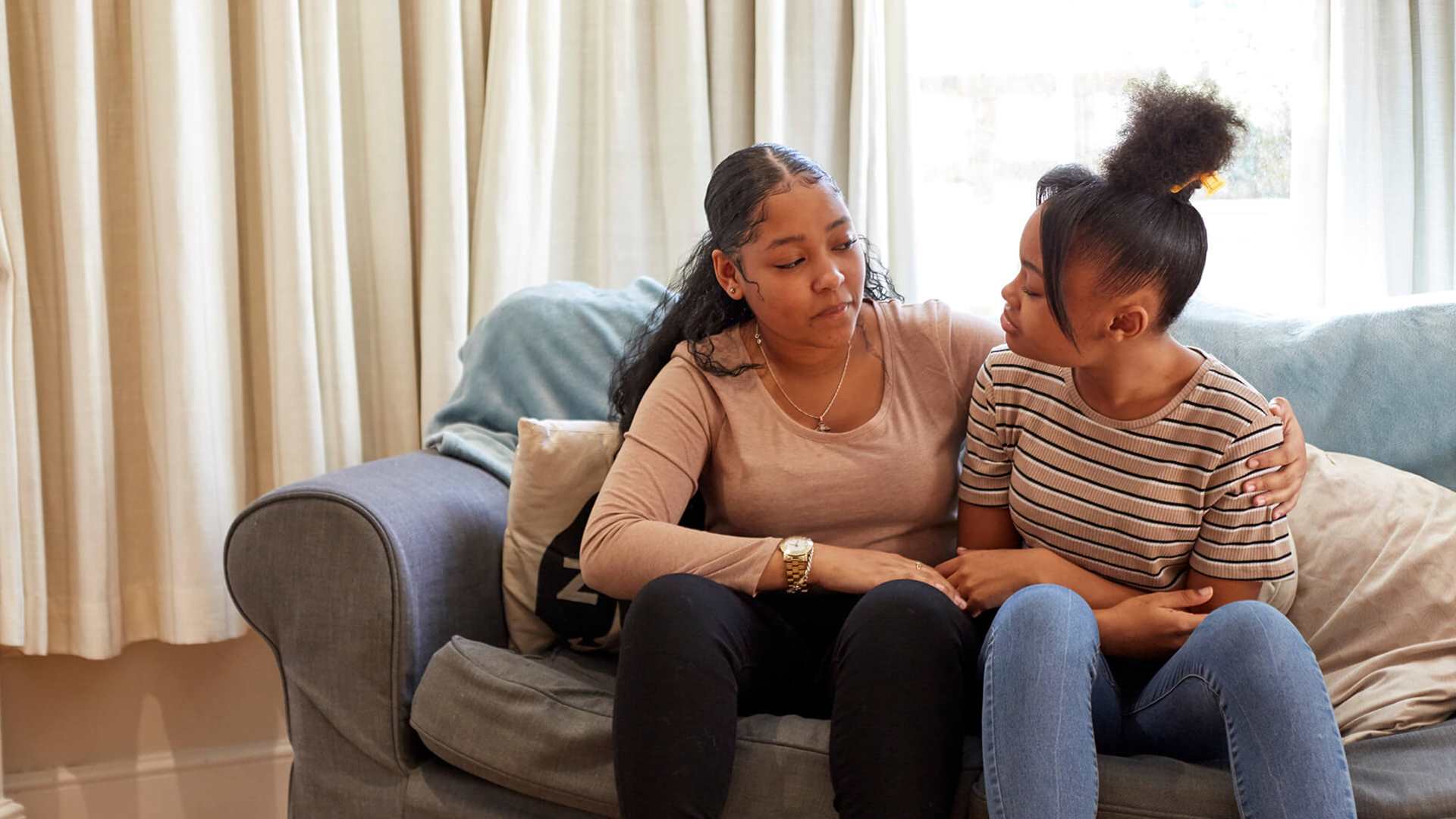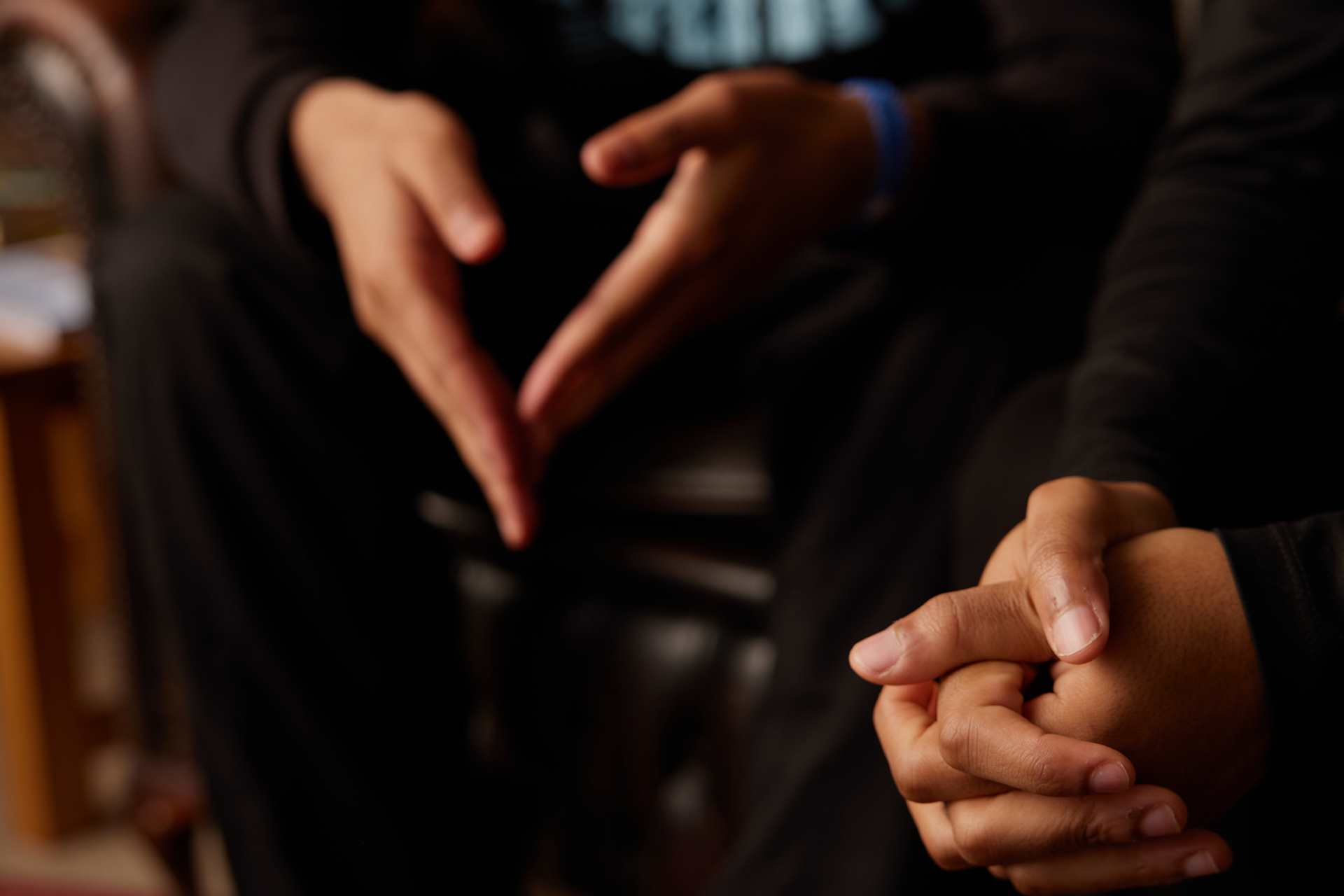Topics mentioned: hoarding, inpatient care, friendships, family, self-care
About: Abbie shares her experience of growing up in a hoarding household and the impacts it had on her mental health.
Hoarding is so much more than "being a bit of a collector". It’s a complex mental health problem that causes you to collect (hoard) a large number of items that you struggle to throw away or sort through. To others, the items you collect may seem meaningless or rubbish, but you really struggle to part with them. It differs from a collector, in that there is often no theme or structure of what is collected, and the number of items becomes unmanageable. You may find yourself hoarding boxes or newspapers regardless of their value. The sheer number of items in your house can have a significant impact on your ability to stay safe within your own home and can also affect your relationships. As a child, I felt the impacts of living in a hoarding household. I want to share my experience and help others that might be going through it.
One area I felt the impact was with my friends. There’s a lot of stigma around hoarding disorders. I had friends who would judge my family situation and I felt embarrassed that I couldn’t have the perfect childhood that I imagined others had.
The sheer number of items in your house can have a significant impact on your ability to stay safe within your own home and can also affect your relationships.
Never being allowed to invite friends round made it difficult to form proper friendships. I didn’t know how to explain to my friends that they couldn’t visit my home due to the state of it. I didn't understand hoarding then, let alone recognise that that was what was going on in my house. I remember having awkward conversations with friends who would say "why can't you just clear up a bit?" But the issue was so much deeper than that. The mess was everywhere and had accumulated over many years, making it too overwhelming to begin to tackle it. I felt a sense of “otherness” from my peers.
And it wasn’t just my social life that it impacted. Growing up we never had essential building work done on our house. This included fixing the boiler, fixing a broken shower, removing mould, and repairing water leaks in my bedroom and the bathroom. I never had any space at home to complete schoolwork, and my schoolbooks often went missing amongst the mess.
The mess was everywhere and had accumulated over many years, making it too overwhelming to begin to tackle it. I felt a sense of “otherness” from my peers.
As my mental health declined, I found it easier to neglect my own self-hygiene. I got the sense that if my environment wasn’t clean, then not cleaning myself wasn’t so bad either. I recognise that I was at an already increased risk of developing these behaviours due to my mental health conditions, but my poor environment did not help – it was an enabler for self-neglect.
The need for structure and routine was very important to me. When I could not have this in my home environment due to the clutter, I found it very distressing. I masked a lot of my feelings until it came out in bursts of rage that to anyone else may have seemed completely unrelated. My home did not feel like a home. It felt like I had no safe place to relax after a long day and that was pretty challenging.
At the age of 16, I spent a prolonged period of time in hospital. When I was finally ready to leave, the doctors said my home was not an appropriate place to be discharged to. I worried that I wouldn't be able to stay with my family or that I would have to stay in hospital much longer than necessary. Eventually my family were in the fortunate position to be able to rent an alternate property, but this took a significant amount of bringing together savings, including money from my grandparents. I moved back in with my family, in our new rental place. The hoarding at my childhood home became easier for the family to ignore, so we were in the position of trying to pay both rent and mortgage for quite some time. This was a big financial burden on my family.
When I was finally ready to leave, the doctors said my home was not an appropriate place to be discharged to. I worried that I wouldn't be able to stay with my family or that I would have to stay in hospital much longer than necessary.
Hoarding cases are often activated or worsened by a family member's death, which causes a sentimental attachment to items relating to them. External stress factors can also contribute to worsening of hoarding behaviours, and many hoarders have separate underlying mental health problems (one study showed around 50% have depression). All of these factors were clear in my family. My auntie passed away shortly before I was born and, growing up, I was always told how a lot of items in the house had some form of connection to her. Not long after my auntie’s passing, my family were evicted from their previous home. So much happened to them around that time, it's not surprising that the stress exhibited itself through hoarding behaviours.
And help for hoarding is hard to get. There was no specialist service for my area. In fact, there are very few services across the nation and no official approved treatment plan for hoarding in the UK, despite it being surprisingly prevalent. Studies show that 2-6% of adults meet the criteria of diagnosis for a hoarding disorder, and if all those affected were appropriately diagnosed and offered treatment, the prevalence of hoarding would make it a common mental health disorder.
Changing my outlook for the future
Sometimes I recognise hoarding tendencies in myself and I have a real anxiety around it. I know that my grandparents were hoarders too and this impacted my parents’ chances of acquiring similar behaviours. Some studies show that half of all hoarders also have a close relative who had a hoarding disorder. I don't want to grow into adulthood developing the same behaviours as I know how much more difficult it has made my life. But so much is yet to be discovered about this illness, we still don't really understand all the contributing factors. I have to remind myself that I am my own person and my experiences do not have to define my future.
If you’re being impacted by hoarding, here’s my advice:
-
Speak to someone you trust about your situation
Shame and stigma only build when people don’t speak about their experiences. I found that I was much less embarrassed about my situation when I started opening up about it. Not everyone will understand, but so many people are willing to listen.
-
Know that it’s not your fault
Hoarding disorders are complex and your family situation cannot be determined by you alone. These disorders often need treatment, rather than one person trying to fix everything without support.
-
Your feelings are valid
Hoarding can cause a lot of stress for everyone involved. It’s okay to feel angry, low, hurt, confused - you’re only human, and these feelings are a natural reaction to your situation.
Sometimes it can feel like your situation is never-ending, but as someone who is now happy and living independently, I can see that there is light at the end of the tunnel. My parents are determined to tackle their issues too. I wish I could’ve told my younger self that it would all work out – she just needed to persevere through the rough times.
More information and advice
We have tips and advice to help you find the support you need. Take a look at our guides.
Where to get help
However you're feeling, there are people who can help you if you are struggling. Here are some services that can support you.
-
Childline
If you’re under 19 you can confidentially call, chat online or email about any problem big or small.
Sign up for a free Childline locker (real name or email address not needed) to use their free 1-2-1 counsellor chat and email support service.
Can provide a BSL interpreter if you are deaf or hearing-impaired.
Hosts online message boards where you can share your experiences, have fun and get support from other young people in similar situations.
- Opening times:
- 24/7
-
Samaritans
Whatever you're going through, you can contact the Samaritans for support. N.B. This is a listening service and does not offer advice or intervention.
- Opening times:
- 24/7
-
CALM (Campaign Against Living Miserably)
Provides support to anyone aged 16+ who is feeling down and needs to talk or find information.
Free webchat service available.
Read information about the helpline and how it works.
- Opening times:
- 5pm - midnight, 365 days a year






